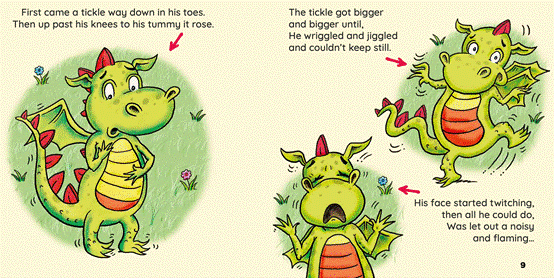What happens when a copyright claim backfires?
- Rosie Burbidge

- Apr 28, 2023
- 3 min read

An author who brought a claim against John Lewis over its 2019 Christmas advert has been ordered to publicise the court judgment finding that there was no copyright infringement.
Fay Evans, who wrote and self-published Fred the Fire-sneezing Dragon (FFD) in September 2017, accused John Lewis and its advertising agency adam&eveDBB of copying her work. The John Lewis 2019 Christmas advert featured an excitable dragon in a human world and was supplemented by a spin-off illustrated children’s book called Excitable Edgar. The concept for the advert was originally sketched in a four-page outline in February 2016.
However, Her Honour Judge Melissa Clarke found that Evans had failed to show that any of the people who worked on the advert and Excitable Edgar book had seen the author’s book until after they were made. “There can be no copyright infringement without copying, and there can be no copying if the work alleged to have been copied has not been accessed (i.e. seen, in this case) by those said to have copied it,” she wrote.
No copyright infringement
There was no dispute that literary and artistic copyright subsisted in Evans’s book or that she owned the copyright.
Evans argued that the John Lewis dragon reproduced certain elements of Fred’s character and appearance (i.e. the fact that the dragon is child-sized and is of a green colour, has a ribbed front, a series of triangular spikes on his head and back, two arms, certain facial features and his general body shape). But the judge found that “at the highest” the similarities that were not in the 2016 outline were “the child-like size, the ribbed stomach, triangular spikes and eyebrows” and they were not sufficiently similar to raise a presumption of copying.
Evans also claimed that there were similarities in the narrative elements, such as the dragon not flying, the dragon being alone, having human acquaintances and becoming the hero of the story. But the judge found that the limited similarities were not sufficient to raise a presumption of copying rather than coincidence.
This was partly because Evans had not evidenced access by the defendants. In fact, said the judge: “the Claimant’s case on access by the Defendants is so weak that that it seems to me to be extremely unlikely that anyone involved in the 2019 Advert or Excitable Edgar had access to FFD before launch at all.” Moreover, access could not be inferred, as the book sold in very small numbers, mainly in primary schools in the north-west of England; it was not found in a due diligence trawl which turned up 80 other children’s books about dragons; and it was only purchased by adam&eveDBB after the complaint was made. HHJ Clarke explained:
“There is not a scrap of evidence of actual access to FFD by the Defendants or their teams before me, and although there is a possibility of access as FFD was available on Amazon and the Claimant’s website, that any such access was actually obtained appears to be so remote as to be almost entirely theoretical.”
Publicity order
It is notable that, in the circumstances of the case, the judge decided that a declaration of non-infringement and a publicity order were warranted. She said that a declaration would “suit the useful purpose of making clear to the public and the industries in which the Defendants and their creative partners work that the allegations of copyright infringement impugning the integrity of their creativity have been rejected by this Court”.
John Lewis had sought a publicity order to counteract the media campaign conducted by Evans over the past 3.5 years. The judge said that Evans was entitled to publicise her claim, but the quid pro quo was that she should now be required to publicise the judgment. It was agreed that she would publish a notice for at least six months on her website, Facebook page and Twitter account, with a link to the judgment.
The case is a reminder of the range of remedies that can be ordered by the UK courts, and the risks involved in making and publicising allegations that cannot be substantiated before a judge.
To find out more about the issues raised in this blog contact Rosie Burbidge, Intellectual Property Partner at Gunnercooke LLP in London - rosie.burbidge@gunnercooke.com




